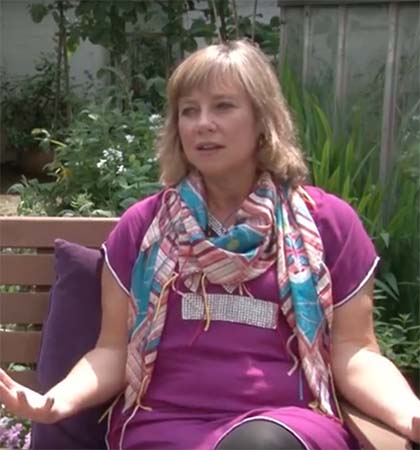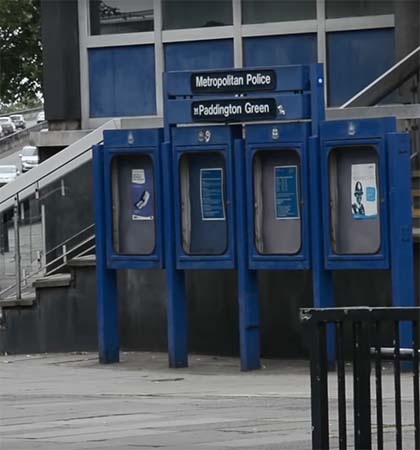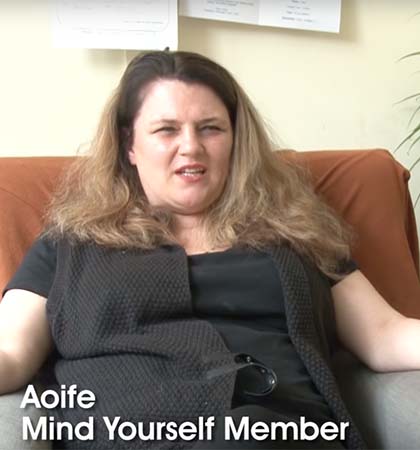A VIDEO released this week has unveiled the isolating situations that have lead to Irish people seeking mental health services in London.
The documentary, which was produced by the charity Mind Yourself, claims Irish people in London have the highest rates of depression and anxiety amongst other ethnic groups in the city.
The support network, which provides health and wellbeing support for London-based Irish people, uploaded their short documentary to YouTube.
In it both first and second generation Irish are heard describing the experiences which lead them to seek out the group.
Scroll down to watch the video in full
 Elaine Sakhaee remembers her parents talking about when they came to London in the 1950s.
Elaine Sakhaee remembers her parents talking about when they came to London in the 1950s.Elaine Sakhaee is a member of Mind Yourself and second generation Irish.
She describes how she felt her parents' pain when they would talk about their experiences when they came to London.
"In the 1950s, when [London] was 'no dogs no blacks no Irish'," she said.
"I remember my dad talking about going to dance halls on a Friday and Saturday night.
"When they came out, the Irish were hurled into waiting police vans and beaten.
"For me, listening to that, you do pick up on their pain," she added.
For another Mind Yourself member, Phil McGahern, it was an incident in 1974 that made him very nervous in the city.
There had been a bank robbery and police at the time had picked him up, suspecting he had been the getaway driver.
"Police swarmed the pub I was drinking in and I was taken to Paddington Green Police station for four days," he claims.
"I didn’t get to sleep for three of the nights I was there.
"During the day they would make me walk up and down and say I even walked like [the man the police were looking for].
 Mr McGahern says he was taken to Paddington Green Station in 1974 where he was held for four days.
Mr McGahern says he was taken to Paddington Green Station in 1974 where he was held for four days."On the fourth day they said, 'Mr. McGahern you’re free to go, the bloke that has done this has been found'.
"They just let me out on on Edgeware Road. I was very nervous after that, with no confidence.
"At the time, depression was such a thing that you didn’t talk about and I clung as much as possible to the Irish community."
For Aoife, it was being ostracised for having a baby and being unmarried that drove her to becoming a member of Mind Yourself.
"It was just such a change to be living in a new country by myself, with no support, no family, no partner, and a baby that I didn’t really know anything about.
"It’s a comfort to have Irish people, and a sense of similarity, around you," she said.
My situation was that I felt forced to keep up a front because, 'you might disgrace the family by having a child outside marriage' and that was more important than my inner feelings."
Brian Hanley is head of services at the support network.
He says that Mind Yourself differs from other groups because they deliver services with an understanding of the background of their members.
"Delivering culturally sensitive services means understanding the background people can come from in Ireland, as well as the backgrounds of people living in London a long time and the history of prejudice and discrimination that can come with that," he said.
"Even in understanding the language used by Irish people in relation to mental health.
"For example, you would never hear an Irish person talking about their anxiety, instead Irish are far more likely to refer to their 'nerves'."
 Aoife came to Mind Yourself after she was ostracised from her family when she had a baby out of wedlock.
Aoife came to Mind Yourself after she was ostracised from her family when she had a baby out of wedlock.In the last year Mind Yourself has helped just under 400 Irish people gain access to health services.
Whilst they do not provide therapy services at their Holloway premises, Mr. Hanley says that they help in other ways.
"We don’t offer therapy but we do provide support around helping people to access other health or wellbeing services, or even social care services that they need," he said.
"This may be phoning people on their behalf, giving advice or information, advocating on peoples’ behalves when they don’t feel they can speak for themselves, or haven’t been listened to by other services or just accompanying people to other health related services, Mind Yourself do it."
Mind Yourself welcomes all Irish people from all walks of life who feel they have been excluded from Irish society.
LGBT people, travellers, survivors of institutional abuse or anyone who might feel excluded from Irish society because of their political or religious beliefs are all welcome to avail of the charity's services.

